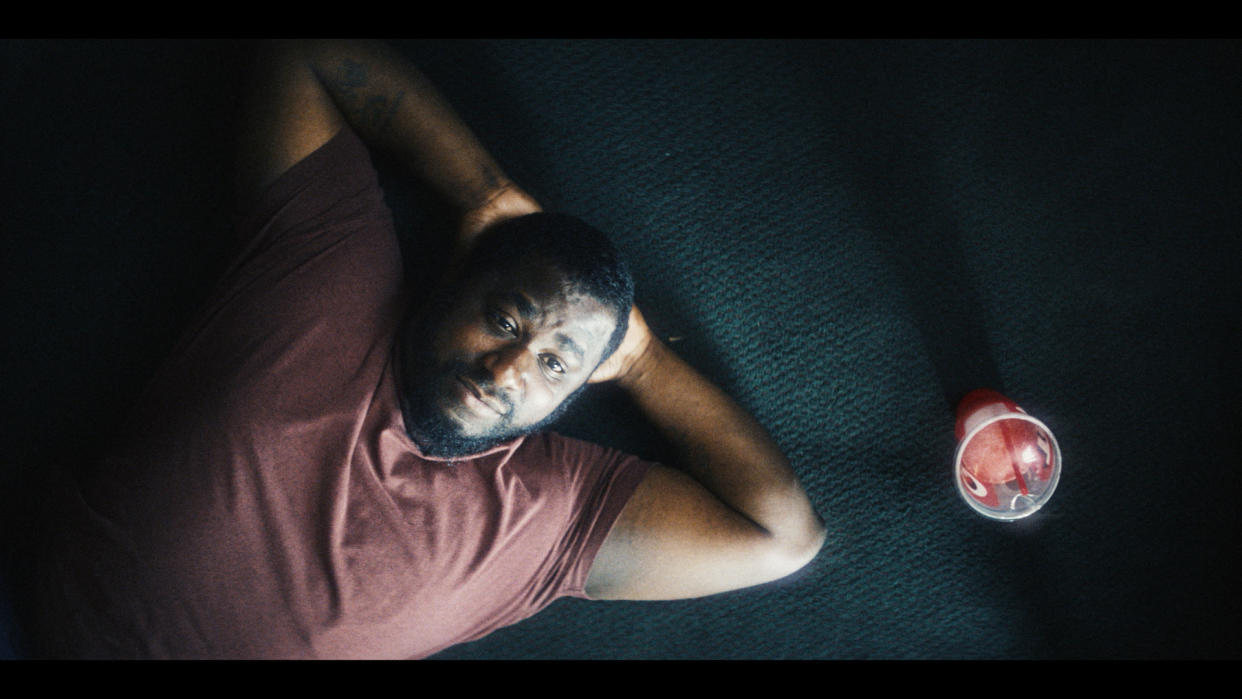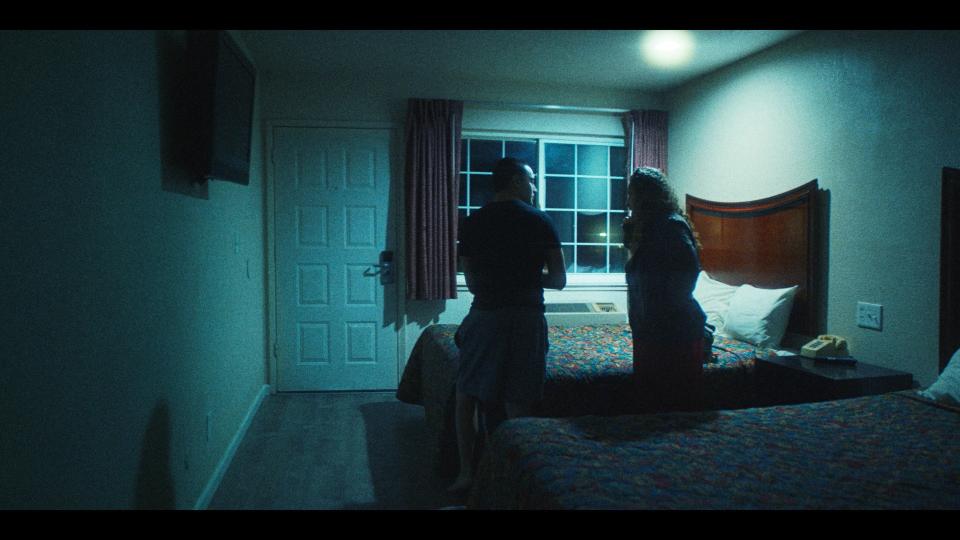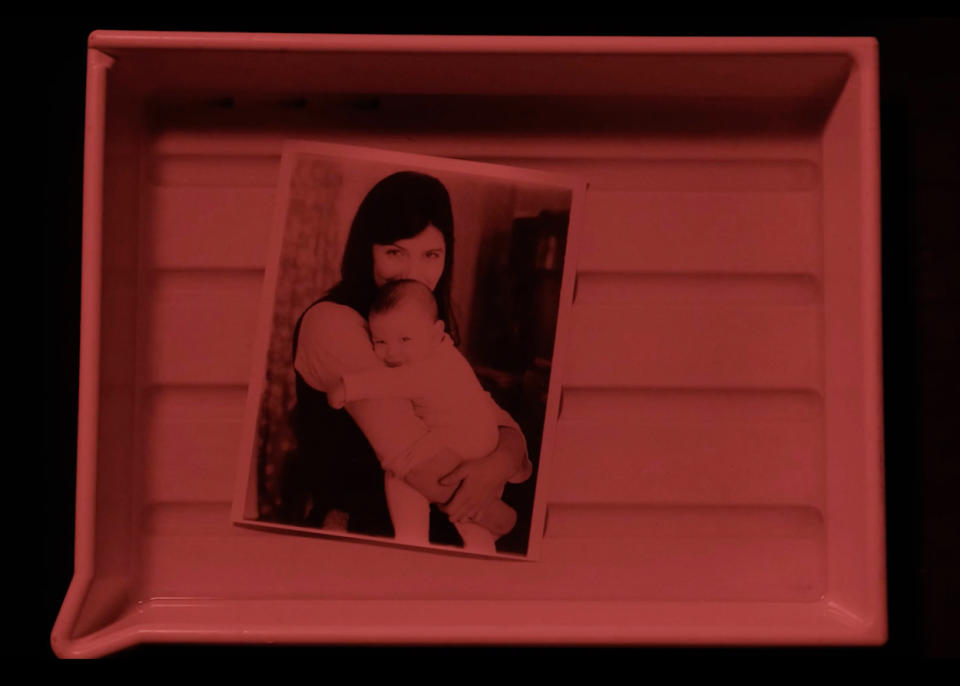The 2024 True/False Film Festival Brought a Parade, Sperm Donors, and a Weekend of Documentaries to Missouri

Chilean director Cristóbal Valenzuela Berríos first learned about the True/False Film Festival, home to documentaries each spring, while attending a festival in Japan a few years ago. He recalls seeing multiple filmmakers wearing beanies emblazoned with the logo of the doc-only event.
Upon asking what the T/F stood for, he was puzzled to learn that people were repping a gathering dedicated to nonfiction cinema on the other side of the world: Columbia, Missouri. Witnessing such devotion gave True/False something of a legendary status in his mind, placing it high up on the list of festivals he eagerly wanted to experience.
More from IndieWire
This year, Valenzuela Berríos finally made it to the small college town with a big appetite for true stories. There, he screened his latest fascinatingly offbeat doc “Alien Island,” about a famous UFO case in Chile with a bizarre connection to the Pinochet dictatorship.
“The filmmakers who had come through here seemed enchanted by the mystique of the festival,” he told IndieWire of the event, which just wrapped over the first weekend in March. “I always wanted to come to see why people were so delighted.”
Such was his desire to attend that, against his producers’ founded concerns, Valenzuela Berríos decided to make the long trip from Santiago for a couple of days despite being in production on his third feature back home. But what makes True/False so special?
Since 2004, the Ragtag Film Society has cultivated engaged local audiences, ranging from film-loving retirees to curious young adults on campus, that pack every screening throughout the four-day documentary celebration. Whether a challenging mid-length work from Madagascar (“Gwetto”) or a crowd-pleasing Norwegian tearjerker (“Ibelin”).
There’s a sense of communal pride around the annual fest, which feels at once tight-knit in atmosphere, because every theater and party venue is within walking distance of the city’s downtown area — and global in reach given that plenty of filmmakers and press fly in.
The first thing director Lance Oppenheim ever heard about True/False was that it hosts a carnival/procession known as the March March, which shuts down a few streets for people to congregate. Kids and adults from the community dress in colorful attire. “I thought that was the most amazing and hilarious idea, a parade for documentary films,” he said.

Oppenheim first attended the festival to present his debut feature, “Some Kind of Heaven,” in 2020, just days before the COVID-19 pandemic shut down all in-person affairs for the foreseeable future. He returned this year for the world premiere of his eyebrow-raising follow-up “Spermworld,” about individuals involved in unregulated sperm donation.
Scheduled to debut on FX and Hulu on March 29, “Spermworld” enjoyed the big-screen treatment before it will enter the privacy of people’s homes and the scrutiny of social media users, sure to have strong opinions on the assortment of peculiar subjects. Oppenheim is thankful that the film’s first of likely few public showings happened at True/False.
“It’s a movie that requires a lot of conversations and in that sense I was so happy to play it there and had the large audience digest it, talk about it, and be challenged by it,” he noted.
But what Oppenheim appreciates most about True/False is that, because the program is entirely comprised of nonfiction works, the distinct narrative modes of each film are appreciated. When documentaries are part of a larger festival landscape alongside fiction, he thinks, nuances get washed away, and all nonfiction is lumped under one generic label.
“What’s frustrating about how some people perceive documentary is that they think of it as a genre unto itself. There are no subgenres when people talk about documentaries,” he said. “Whereas in the reality, it’s not a genre — it’s a medium of filmmaking, and there are so many different tones and approaches to storytelling within documentary.”
Similarly, Valenzuela Berríos believes that when nonfiction has to share the stage with its counterpart at festivals, the latter inherently receives more attention.
“It feels like the difference between literature and poetry. The ones who write novels are the rockstars and poets are more underground,” he explained. “Documentary is a bit like that, more underground. Fiction is often the star of the show, so having a specialized, niche space allows us in nonfiction to communicate with other people doing the same.”
First-time director Rachel Elizabeth Seed recalled having some sleepless nights before she knew what festival would hold the world premiere of her debut “A Photographic Memory,” which tracks her efforts to get to know her late mother, who died when the director was an infant, through the journalistic work she left behind and the people who knew her.

“I was like, ‘What if nobody responds to the film?’” she said. After working on this profoundly personal project for over a decade, she felt relieved that True/False shepherded the movie into the world. Her first public screening earned her a standing ovation from a packed audience.
“One thing I heard is that it’s kind of a smaller festival, so you might have to work to bring attention to your film. That was a concern because I didn’t want it to just go off into the atmosphere with nobody noticing the film,” said Seed. “But that hasn’t been an issue.”
The expectations of German-French filmmaker Sylvain Cruiziat were equally exceeded. Cruiziat admits he didn’t know what to anticipate from an American festival that occurs not in a coastal city but in the middle of the country. His first directorial effort, “Boyz,” an endearing look at the friendship between three college-aged young men who challenge outdated masculinity, had its North American premiere at True/False to receptive crowds.
“What’s beautiful is that there are only documentarians here,” he said. “You are here with fellow documentary filmmakers, and the appreciation for documentary is really felt throughout the whole festival, from the staff to the viewers.”
Cruiziat was pleasantly surprised that the expressions of vulnerable male camaraderie that the guys in his movie display resonated with American viewers. A bigger victory, however, was that the humor also connected. “It was interesting as a European to bring it to the U.S. and to see how the reaction was. I think people understood it,” he said. “The sarcasm and several jokes really landed here, but for example, in Amsterdam, they didn’t work that well.”
Seed loves a documentary that can make her laugh while immersing her in the experience of another human being. She believes social issue docs have turned overly didactic in recent years. “I want to see weird stories about interesting people,” she said. Thankfully, the eclectic curation at the festival makes it possible to discover those.
“To me, it actually doesn’t even really feel like a documentary festival just because there are so many different kinds of films that are programmed,” Oppenheim added. “At True/False it feels like you’re experiencing a whole wide array of what nonfiction storytelling is today.”
Best of IndieWire
The 65 Best Sci-Fi Movies of the 21st Century, from 'Melancholia' and 'M3GAN' to 'Asteroid City'
Christopher Nolan Movies, Ranked from 'The Dark Knight' and 'Tenet' to 'Dunkirk' and 'Oppenheimer'
Where to Watch This Week's New Movies, Including 'Argylle' and 'How to Have Sex'
Sign up for Indiewire's Newsletter. For the latest news, follow us on Facebook, Twitter, and Instagram.


